Solar carports are one the most unique and rapidly growing areas of the solar industry in Australia. Piggybacking off the rise of electric vehicles worldwide, integrating solar power into our road infrastructure provides many opportunities for shrewd business owners to take advantage of to benefit their businesses.
So, buckle up as we navigate the ins and outs of solar carports, answering all your burning questions so you can make an informed choice.
Alternatively, head straight to our page for solar carports to learn about KUGA’s capabilities and see our recent projects.
What is a solar carport and how does it work?
A solar carport combines the traditional functionality of a carport—providing shelter and protection for vehicles from the elements—with the added benefit of generating solar power. Essentially, it’s a carport equipped with photovoltaic (PV) panels on its roof. These PV panels capture sunlight and convert it into electricity, which can then be used to power your business operations or be fed back into the grid, depending on the system’s configuration and your business’s energy needs.
The operation of a solar carport is straightforward to understand. Solar panels mounted on the carport’s roof absorb sunlight, which is converted into direct current (DC) electricity. An inverter then transforms this DC electricity into alternating current (AC), making it compatible with your business’s electrical system and the wider grid.
Solar carports can also be integrated with electric vehicle (EV) charging stations, synergising your business with the EV ecosystem.
Learn about KUGA’s solar EV chargers.
Why are solar carports considered a sustainable solution?
Solar carports are a sustainable option to support your business power generation because they tap into solar power, a plentiful and renewable resource. This shift helps you reduce your business’s carbon footprint and directly contribute to efforts against climate change by converting unused space in your parking lot.
By transforming underutilised parking areas into solar power plants, solar carports offer the dual benefit of adding value to existing real estate without needing to develop any additional land.
Moreover, solar carports contribute to the creation of greener urban spaces. They provide shaded parking, which can lower temperatures in the immediate area and reduce the urban heat island effect. The cooling effect of solar carports makes for a more comfortable environment and decreases the energy needed for air conditioning in nearby buildings, which further amplifies their environmental impact.
What are the key benefits of installing a solar carport for businesses?
Installing a solar carport presents a myriad of benefits for businesses, including:
Financial benefits
Financially, solar carports offer a substantial reduction in electricity costs over time. The savings offset your initial investment garnered from generating your own electricity, reducing reliance on the grid, and, in some cases, earning from feed-in tariffs by supplying excess power back to the electricity network.
Additionally, depending on the size of the installation, a solar carport could qualify you for business solar rebates like Small-scale Technology Certificates (STCs).
Environmental benefits
Since they generate clean, renewable energy, solar carports directly contribute to your businesses’ sustainability goals. Usually installed in combination with a comprehensive rooftop commercial solar system, a solar carport can help you dramatically reduce your organisation’s carbon footprint and do your part against climate change.
Reputational benefits
Solar carports also enhance your company’s reputation as a responsible, forward-thinking entity committed to sustainable practices. This positive image can strengthen customer and stakeholder relationships, attracting those who prefer to engage with environmentally conscious businesses.
Practical benefits
Of course, solar carports also have the immediate practical utility of shading and protecting vehicles parked at your business. This can provide additional peace of mind to employees and visitors. Connecting your solar carport with EV chargers adds another obvious benefit, allowing visitors and employees to charge their electric vehicles with ease.
How do solar carports compare to rooftop solar panels?
Solar carports and rooftop solar panels function identically, with both systems sharing the goal of utilising unused space (your business roof or parking lot) to generate renewable solar power.
However, they differ in that solar carports typically require additional infrastructure to support them (namely, the steel framework of the canopy that shields the vehicle and supports the solar panels).
As for efficiency, solar carports and rooftop systems have the same potential power output, which is informed by the solar panel technology used. Both rooftop and carport solar arrays will be installed at the optimal angle to capture the most sunlight during the day. This is in contrast to off-grid solar systems, which can be installed with tracking systems that make the panels follow the trajectory of the sun as it travels overhead.
Solar carports can be a great alternative to rooftop solar if your business does not have adequate roof space for a traditional solar array. One advantage that solar carports have over rooftop solar is that they also serve a practical function in providing shade and protection for parked vehicles at your business.
So, while both systems serve to reduce reliance on fossil fuels and decrease energy costs, the choice between a solar carport and rooftop solar panels often comes down to your specific needs, space availability, and business objectives.
What design considerations are there for solar carports?
There are several key considerations when designing solar carports:
1. The orientation and tilt of the solar panels are crucial to the efficiency of the system once it;s installed. Panels need to be positioned so they match the latitude of the location to capture the maximal amount of sunlight.
2. The structural design of the canopy is also important. The carport must be robust enough to support the weight of the solar panels and withstand local weather conditions. The carport should also be tall enough to accommodate different vehicle sized while also allowing easy movement and access for pedestrians in the parking lot.
3. The design should also make it easy for technicians to access the solar panels/inverter to perform maintenance and repairs where required.
4. If there is a plan to integrate EV charging stations, this will also impact the initial design.
How do solar carports contribute to corporate social responsibility (CSR)?
Solar carports significantly bolster your business’s Corporate Social Responsibility (CSR) profile by showcasing a tangible commitment to environmental sustainability. Installing a solar carport reduces your carbon emissions and reliance on non-renewable energy sources, so you’re aligning your business with global efforts to combat climate change. This alignment demonstrates corporate responsibility towards preserving the environment but also resonates with consumers, employees, and stakeholders who increasingly prefer to engage with eco-conscious businesses.
How can I choose the right solar carport provider?
Like any solar project, choosing the right provider is crucial to ensure the project’s success and long-term viability.
You should always go with an experienced provider with a solid track record in designing and installing solar carports. It’s important to review their portfolio to assess their expertise and experience with projects of similar scale and complexity.
At KUGA Electrical, we’re Australia’s experts at designing and installing solar-ready carports that generate a fast ROI for businesses. Our solar carport experience speaks for itself with our recent projects like our 323kW hospital installation in NSW or our massive 773kW installation at Anakie, VIC.
Learn more about our solar carports or contact us to discuss your business solar needs.

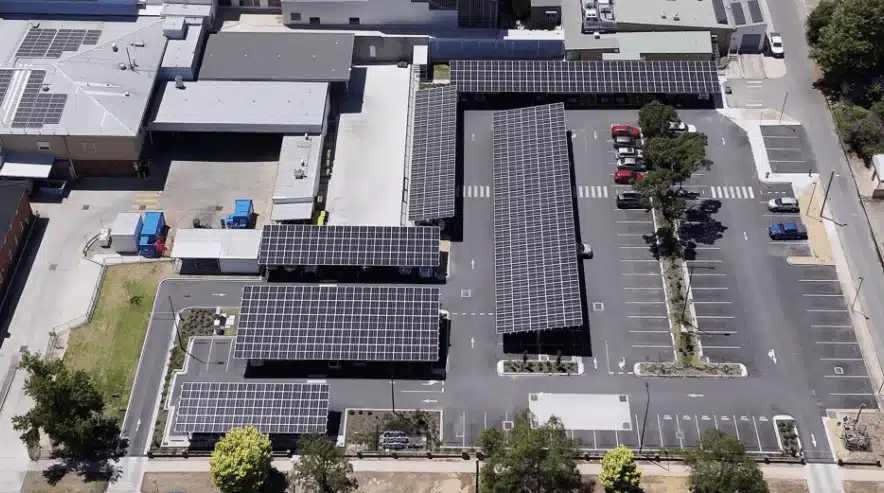
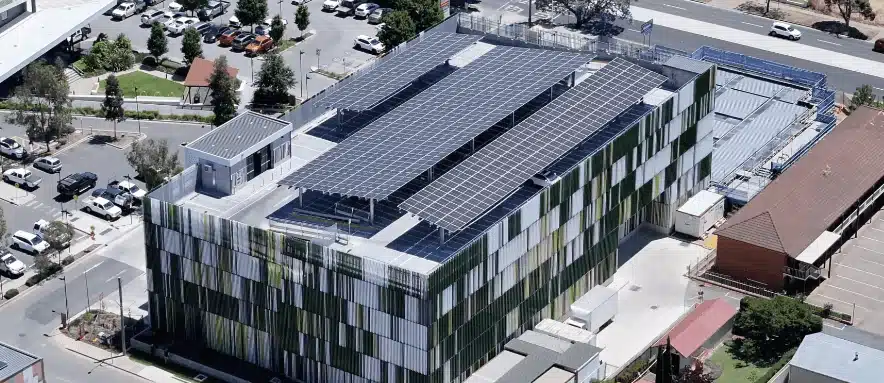
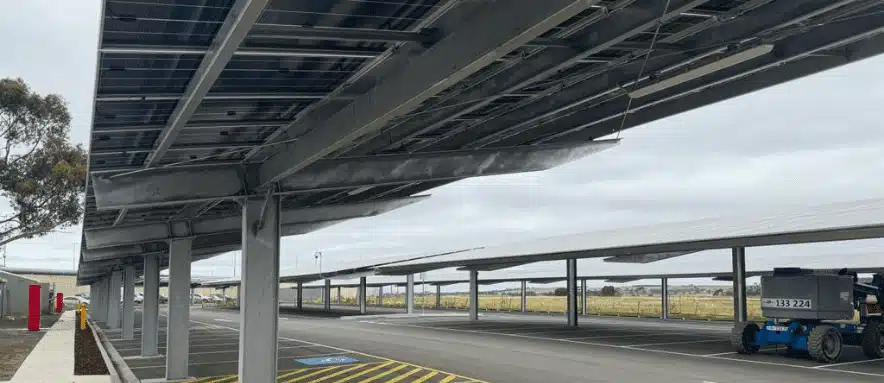
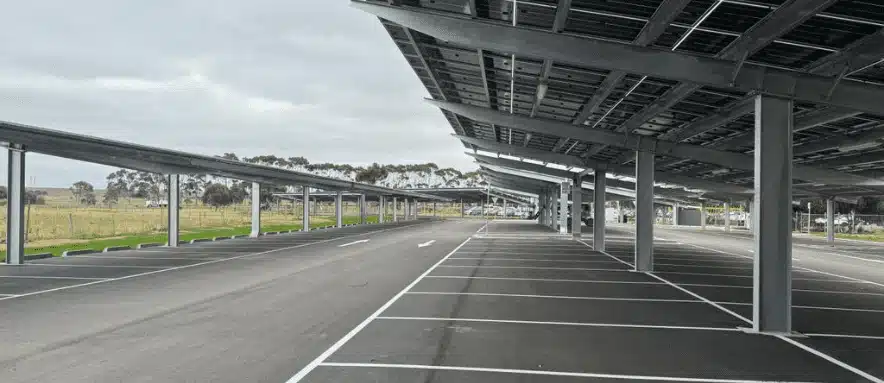
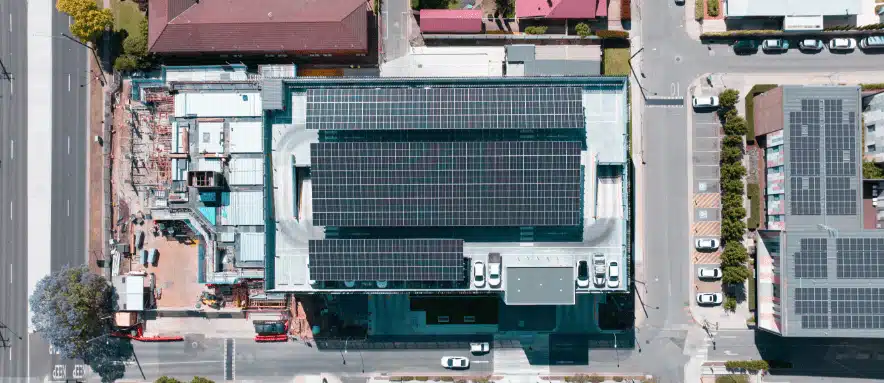
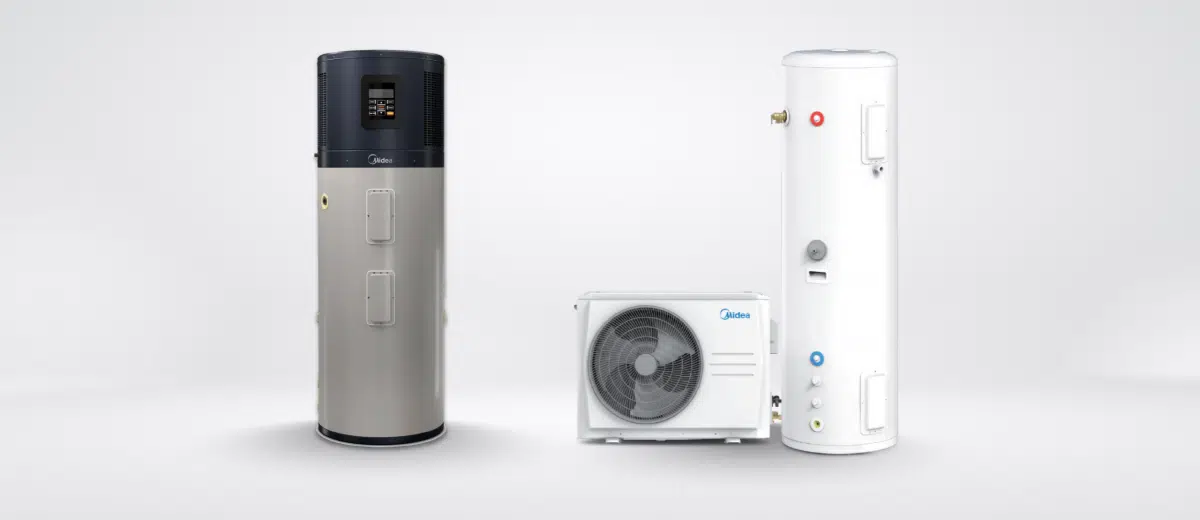
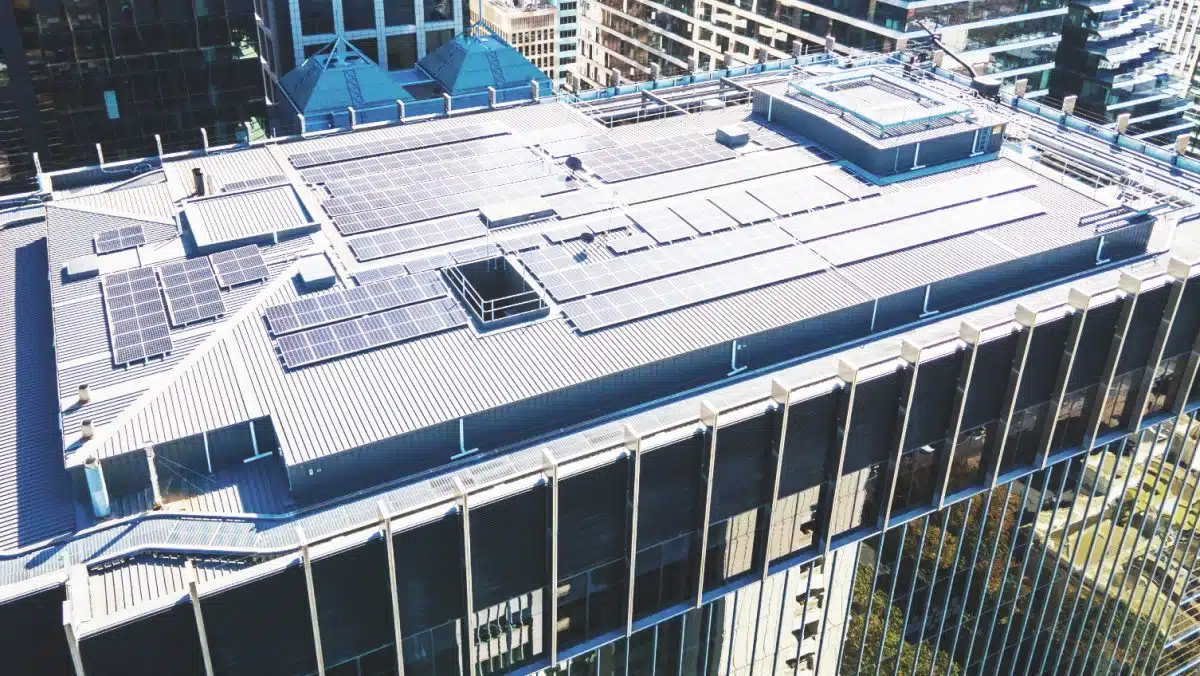









 Get Quote
Get Quote Call Now
Call Now